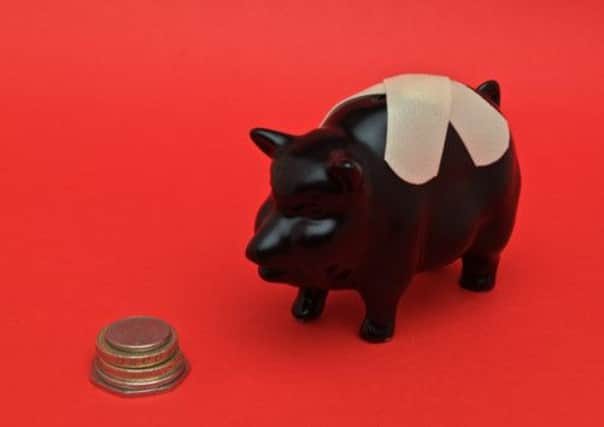50% drop in insolvencies in past year - reports


• Fall in corporate insolvencies in past year of around 50 per cent, according to accountants KPMG
• Reports show “much more positive” trend emerging as bulk of insolvencies “behind us”
Advertisement
Hide AdAdvertisement
Hide AdTwo separate accountancy reports have recorded falls in corporate insolvencies of about 50% in the year to June 2013, although the trend reversed slightly in the final three months.
A similar pattern was seen in the number of individuals going bankrupt, with a significant decrease at the start of the year offset by a rise in the last quarter.
KPMG said the corporate insolvency figures point to “a much more positive trend” emerging in business while law firm HBJ Gateley said the figures “suggest the bulk of corporate insolvencies are behind us”.
Enterprise minister Fergus Ewing described the year-on-year decline in personal insolvencies as “encouraging”, but one Edinburgh-based accountant has warned that the recent reversal is a matter “of great concern” and could point to further rises in the future.
Labour said the Scottish Government has “made it more difficult” for people to enter bankruptcy by doubling the fees from £100 to £200.
Quarterly corporate insolvencies fell from 420 to 143 in the year to April before rising again to 184 in the following three months, according to official insolvency service Accountant in Bankruptcy (AiB).
This pattern was confirmed in a separate report by accountants KPMG, which saw corporate insolvencies drop from 353 to 159 before rising to 193 over the same period using different methodology.
Quarterly personal insolvencies dropped from 5,601 to 3,486 in the year to April before rising again to 3,999 in the quarter to June, according to AiB.
Advertisement
Hide AdAdvertisement
Hide AdThe ongoing overall fall in personal insolvencies has almost reversed the “significant” rise seen in 2008 when new legislation allowed people with low incomes and low assets (LILA) to enter bankruptcy.
Blair Nimmo, head of restructuring for KPMG in Scotland, said: “We are starting to see a much more positive trend emerge with the business failure rate in Scotland clearly starting to slow.
“Our experience tells us that there seems to have been a slight improvement in optimism in the past quarter, particularly amongst larger businesses.
“However, it is probably too early to say whether this will translate into investment for growth as the recovery remains fragile.”
Fiona McKerrell, corporate restructuring partner at HBJ Gateley, said: “It’s encouraging to see the long-term trend for insolvencies coming down.
“There’s still no great sign of a resurgent economy, which could in fact lead to a spike in insolvencies as weaker entities are weeded out, but these figures would suggest the bulk of corporate insolvencies are behind us, for now at least.”
Mr Ewing said: “Although these new figures mark an increase in personal bankruptcies this quarter, it is encouraging to see that there continues to be a reduction on levels compared to this time last year and a general decline since 2008-09.”
Bryan Jackson, business restructuring partner with Edinburgh-based BDO LLP, said the personal insolvency figures are a matter of “great concern”.
Advertisement
Hide AdAdvertisement
Hide Ad“Unfortunately, I would not be surprised to see continued increases in personal insolvencies in the months to come,” he said.
“The increase in the number of payday and short-term lenders is indicative of serious financial problems among thousands of Scots whose circumstances will only be exacerbated by such loans.”
Labour finance spokeswoman Jenny Marra said: “A fall in bankruptcy should be a good thing, but after the SNP doubled the fees from £100 to £200 last year for people with low income and low assets to declare themselves bankrupt, we can take no comfort in this decline.
“People are still in financial dire straits but the SNP made it more difficult for people who are desperately struggling to find a way out.”
SEE ALSO